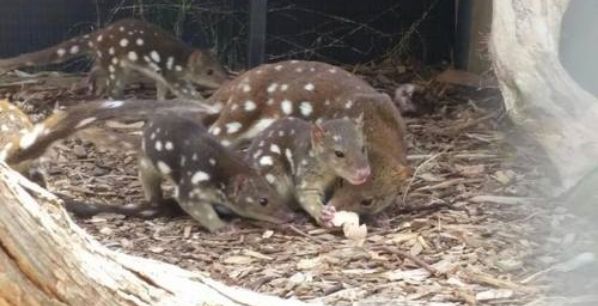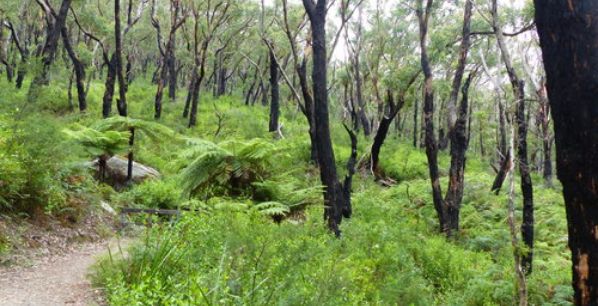Discover Victoria & Melbourne with Bunyip tours!
We continuously strive to exceed our guests’ expectations & provide innovative and enjoyable, quality tours throughout Victoria that respect the environment and local culture.
Bunyip Tours would not exist without the stunning beauty and unique native flora & fauna of Victoria’s natural environment. We recognise that we have a responsibility to the environment beyond legal and regulatory requirements. We are committed to reducing our environmental impact and continually improving our environmental performance as an integral part of our business strategy and operating methods, with regular reviews. We encourage our customers, suppliers and other stakeholders to do the same.
We help support the animals and conservation and education programs at Moonlit Sanctuary by sponsoring a Spotted Quoll & Koala which contributes directly to their conservation breeding programs for endangered species such as the orange-bellied parrots and bush-stone curlews. We ensure we align ourselves with eco-certified operators such as Moonlit Sanctuary and Phillip Island Nature Park.


We proudly work with Greenfleet to offset the our touring fleet’s carbon dioxide emissions. Since July 2006 we have offset more than 3434 tonnes of carbon using a range of third party programmes.


Bunyip Tours’ activities have been eco-certified with Ecotourism Australia for more than 10 years. In 2018 Bunyip was recognised as a green leader for it’s long term commitment to the program. We have adopted its principles of environmentally sustainable practices and providing high quality nature-based tourism experiences. Upon induction, our guides are required to complete a number of training modules to ensure they have a high level of competence in the principles of ecotourism.
Our guides are instructed to ensure minimal environmental impact, and to provide accurate interpretation, and keeping wildlife disturbance to a minimum by viewing from appropriate distances and informing our guests how to view wildlife with patience and respect.
Activities are always confined to tracks and boardwalks to minimise negative impacts.
Ecotourism is defined as tourism in natural areas focusing on optimal resources use, conservation practices and helping local communities.